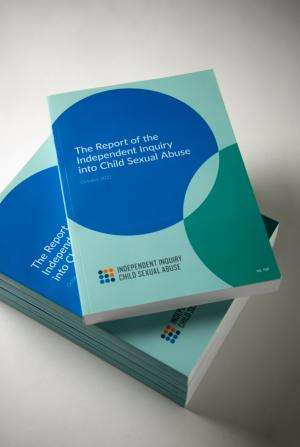Mandatory reporting of CSA will criminalise social workers for not acting

Published by Professional Social Work magazine, 12 April, 2023
Social workers in England and Wales will be required by law to report a disclosure or suspicion of child sexual abuse.
The government is to launch a "call for evidence" consultation before implementing the new duty which will apply to all professionals working with children. A failure to do so could result in criminal prosecution.
Mandatory reporting of child sexual abuse was a key recommendation of the Independent Inquiry into Child Sexual Abuse (IICSA).
Announcing plans to adopt the measure last month, home secretary Suella Braverman sparked controversy after claiming professionals turned a blind eye on gangs of "overwhelmingly" Pakistani men grooming girls in places like Rotherham and Rochdale out of fear of being called racist.
Her comments, repeated by Prime Minister Rishi Sunak, were condemned as “dog-whistle” politics by Labour Mayor of West Yorkshire, Tracy Brabin.
Mandatory reporting of child sexual abuse (CSA) was initially put forward under the Serious Crimes Bill in 2014.
A consultation was launched by the Department for Education in 2016. Its findings, published in 2018, ruled out changing the law, claiming doing so would not make children safer.
It warned of creating “risk averse behaviour driven by fear of sanctions” increasing referrals and creating a “needle in a haystack effect”, making it harder to identify real cases.
The report said mandatory reporting could also increase interventions in family life causing disengagement and put people off disclosing abuse if they knew workers legally had to report it.
However, the IICSA in its final report published last October, said the evidence it had examined had led it to reach “different conclusions”.
It said throughout its investigations the inquiry “repeatedly found that allegations and indicators of child sexual abuse were under-reported by adults who ought to have reported them”.
Mandatory reporting would be a “powerful weapon against child sexual abuse” and also improve support for victims, said the IICSA.
Announcing the government’s change of direction, Braverman said: “Every adult must be supported to call out child sexual abuse without fear.
“That’s why I’m introducing a mandatory reporting duty and launching a call for evidence. We must address the failings identified by the inquiry and take on board the views of the thousands of victims and survivors who contributed to it.”
However, children's services leaders questioned the move.
John Pearce, president of tthe Association of Directors of Children's Services, said: “Many professionals already face serious sanctions if they knowingly fail to pass on information about suspected abuse, and that is right.
"There is no evidence that mandatory reporting would provide greater protections for children or improve their outcomes. It is important that any potential unintended consequences are considered such as the risks of overwhelming the systems already in place to protect children and our staff.
"The introduction of a similar duty in Australia led to a significant increase in contacts, the majority of which were unsubstantiated and there are also other international examples we can learn from. If a mandatory reporting duty was introduced, it would need to be fully funded by central government. We await more details and will be responding to the call for evidence in due course.”
Speaking to PSW last year, professor Ray Jones, who is leading an independent inquiry into children's social care in Northern Ireland, also urged caution. He warned professionals could end up “insuring themselves from possible criminal charges by flooding child protection services with any and every possible low level concern”.
But Jonathan West, a child protection campaigner, claimed concerns about the system being “swamped” by referrals were not borne out in countries that already mandate reporting.
In a Twitter thread written in wake of publication of the IICSA final report last October, he wrote: “The threshold for reporting has to be a reasonable one.
“’Reasonable grounds for suspicion’ is a well-established phrase, familiar to any magistrate. Mandated reporters will have been given training and guidance of the signs which give rise to reasonable grounds for suspicion.”
Mandatory reporting of child sexual abuse is not the first time the government has attempted to bring in a new law that could potentially criminalise social workers. In 2015, then Prime Minister David Cameron announced plans to extend the crime of wilful neglect to children’s social care.
Cameron said he wanted to send an “unequivocal message that professionals who failed to protect children will be held properly accountable”.
The move sparked a backlash from social workers angered at the prospect of a five-year prison sentence hanging over their head.
They criticised the government for singling out individual social workers to blame for failings that might be systemic. The plans were quietly dropped.
